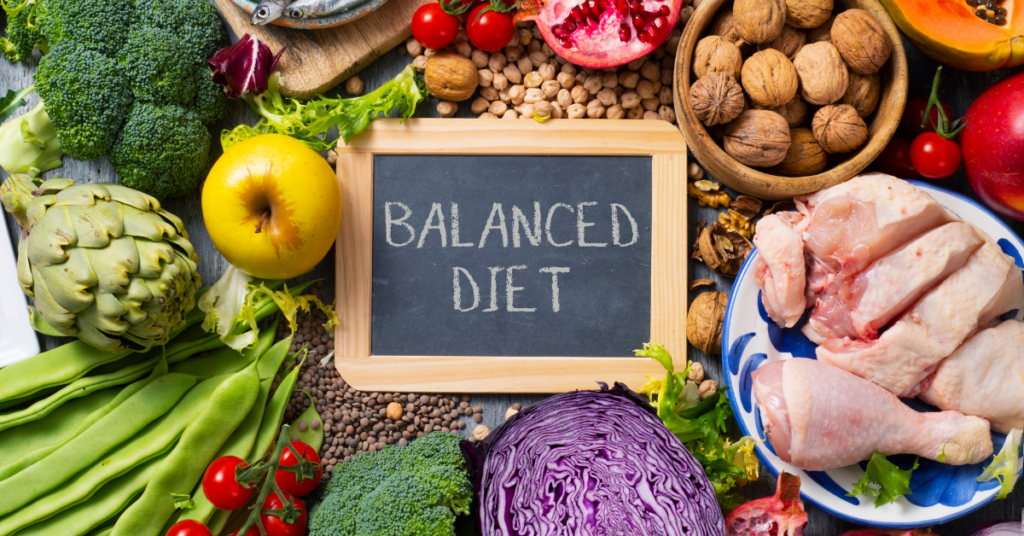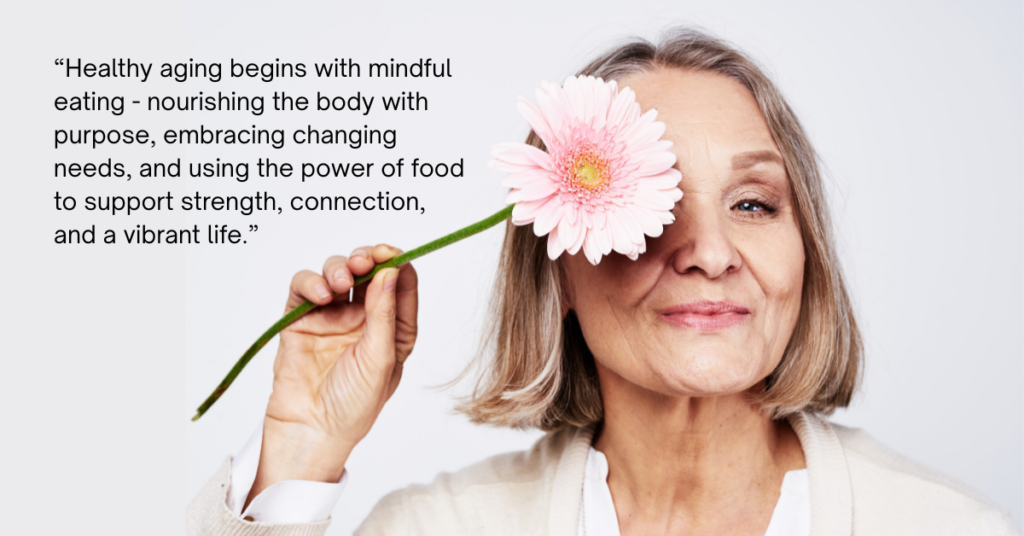Our Care Director, Sr Heide Archer, writes: The Key to Healthy Aging.
“In today’s world, we’re constantly surrounded by diet trends, low carb, no sugar, ketogenic, Mediterranean, paleo—the list is endless. But when it comes to healthy aging, it’s not about the latest fad. It’s about fueling our bodies wisely to stay strong, independent, and full of life.

As we age, our bodies change, and so do our nutritional needs. One of the most important ways to prevent frailty and maintain overall well-being is through good nutrition. Let’s revisit the three key pillars of wellness in older adulthood:
The 3 Pillars of Health:
• Physical Health – staying active and mobile
• Nutritional Support – eating to nourish the body and prevent disease
• Mental & Social Well-being – staying connected and mentally engaged
Key Aspects of Nutritional Support for Older Adults

Adequate Intake
Ensure enough energy, protein, vitamins, and minerals through balanced meals and snacks.
Protein Matters
Protein helps maintain muscle mass and strength. Include:
• Lean meats, poultry, and seafood
• Dairy and fortified soy products
• Beans, peas, lentils, and eggs
Vitamin B12
As we age, our ability to absorb B12 can decrease. Consider:
• Fortified cereals or plant-based milks
• Supplements, if recommended by your healthcare provider
Individualised Needs
No two people are alike. Nutritional support should reflect:
• Medical conditions (e.g., diabetes, heart disease)
• Cultural or dietary preferences
• Food allergies or restrictions
Social Eating
Eating with others boosts mood and improves appetite. Consider:
• Joining community meals
• Inviting friends or family over
• Sharing meals virtually if in-person isn’t possible
Supplement Wisely
Supplements may be helpful, especially for:
• Calcium & Vitamin D – for strong bones
• Vitamin B12 – to support nerve health and energy
• Many supplements are available that give you a good mix of proteins, carbs, vitamins, and minerals- choose one that you like and enjoy a daily shake
Overcoming Challenges
If cooking or shopping becomes difficult:
• Use frozen, canned, or ready-made healthy options
• Seek help with grocery delivery or meal services
Challenges such as difficulty with meal preparation, swallowing, or chewing can be addressed with modifications to food textures, assistance with meal preparation, or the use of assistive devices.
Regular Nutritional Screening
• Ask your doctor or dietitian about regular checks for:
• Weight changes
• Vitamin or mineral deficiencies
• Appetite or digestion issues
Part of a Bigger Picture
Nutrition should be included in a complete care plan, along with medical, physical, and emotional health considerations.
Examples of Nutritional Interventions
1. Balanced Diet Advice Focus on a variety of foods—fruits, vegetables, lean proteins, and whole grains.
2. Oral Nutritional Supplements
When appetite is low, a supplement drink or powder can add protein, calories, and nutrients.
3. Condition-Specific Nutrition Plans
Tailored support for those with cancer, malnutrition, or chronic conditions.

Don’t Forget Hydration!
Older adults are more prone to dehydration. Aim for:
• Water, milk, herbal teas
• Hydrating foods like melons, soups, and cucumbers
A Final Thought
Healthy eating in later life isn’t about restriction, it’s about nourishing the body and soul. Good food supports independence, resilience, and joy.
Good nutrition is one of the most effective ways to promote independence, prevent frailty, and enhance quality of life.
It’s not just about food—it’s about health, connection, and care.
When thoughtfully integrated into daily life and broader care plans, nutritional support becomes a powerful tool in the journey toward healthy aging.
Much love, Sr Heide-Marie Archer”


